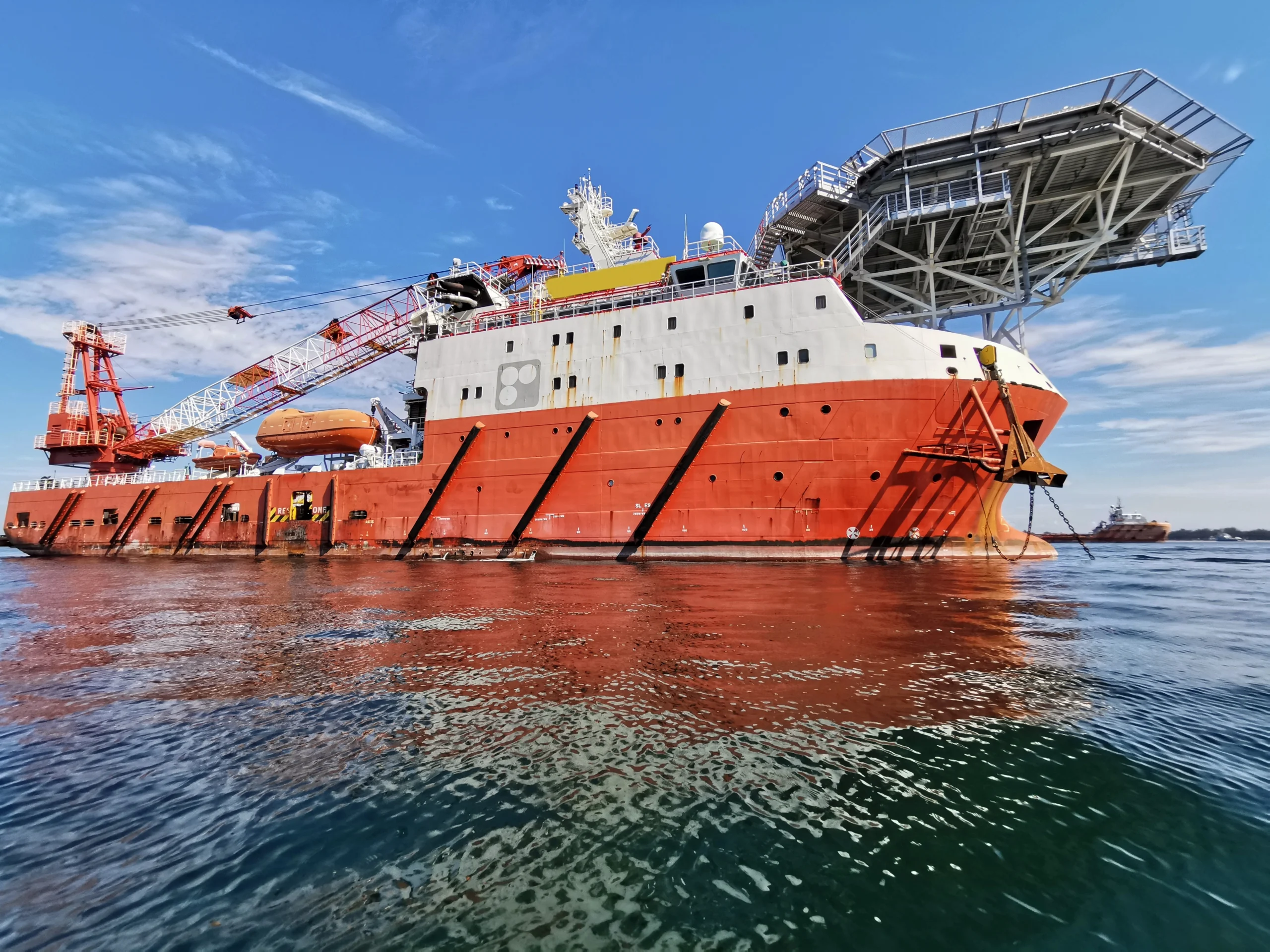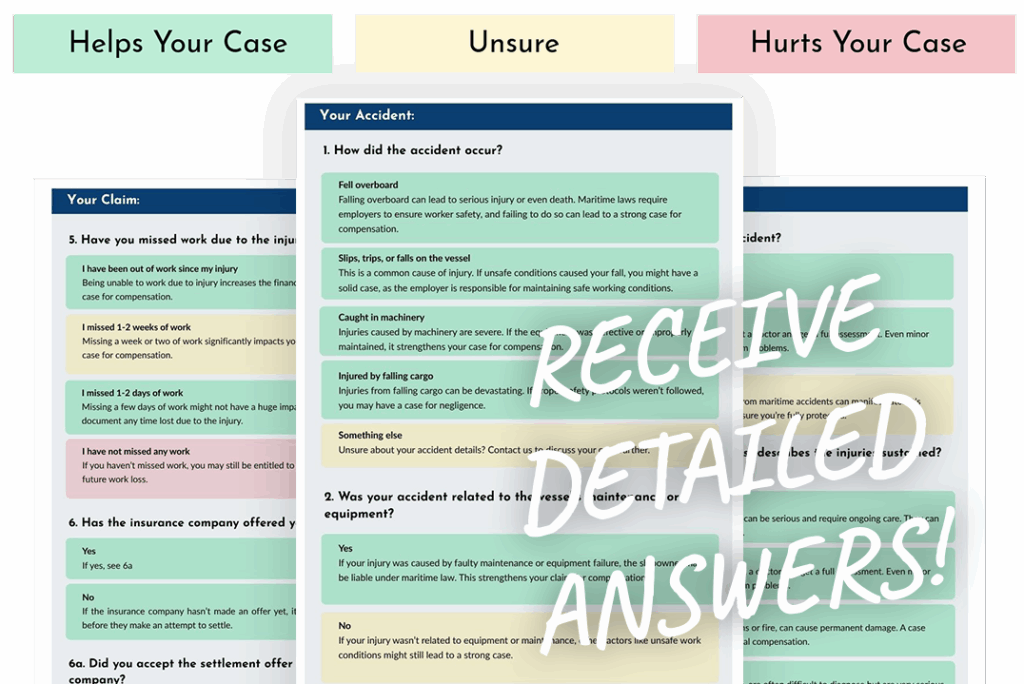Unseaworthy Claims
Over $1 Billion Recovered for Maritime Accident Victims. We are proud to have a reputation for aggressively fighting for the rights of injured workers.
Unseaworthy Vessel Injury Lawyers in New Orleans – Lambert Zainey
Maritime law puts a very important, basic duty on vessel owners: they must provide a seaworthy vessel. This means the ship, all its equipment, and even the crew must be reasonably fit and safe for the job it’s supposed to do. If the owner fails in this duty, and an unsafe (unseaworthy) condition causes an injury, injured seamen have the right to get compensation through an unseaworthiness claim.
Understanding and proving that a vessel was unseaworthy is different from proving regular carelessness (negligence). It takes specific legal knowledge. At Lambert Zainey, our New Orleans maritime lawyers have handled these unseaworthiness claims for injured seamen for decades. We know how to investigate vessel problems, find proof that the seaworthiness duty was broken, and fight for the full amount of money our clients deserve.
Hurt Because Your Vessel Was Unsafe? Let Us Check Your Claim.
On This Page
What Does “Unseaworthiness” Mean in Maritime Law?
The idea of “unseaworthiness” is a basic rule in maritime law made to protect seamen working on vessels. It simply means the vessel owner must make sure their vessel is reasonably fit and safe for its trip and the work it needs to do. This duty covers:
This duty is absolute (the owner has it no matter what) and non-delegable (they can’t blame someone else they hired to maintain things). If an unsafe, unseaworthy condition exists and hurts someone, the vessel owner is responsible.
The Vessel Owner’s Strict Duty (They Can’t Pass the Buck)
What does “absolute and non-delegable” really mean?
This duty means the vessel must be reasonably safe for seamen doing their jobs. It doesn’t have to be perfectly accident-proof, but it needs the right gear, enough competent crew, and safe work methods.
Who Can Make an Unseaworthiness Claim?
The duty to provide a seaworthy vessel is mainly owed to seamen (crew members) working on the vessel. Figuring out if you count as a seaman involves a legal test based on your connection to a working vessel.
Other workers, like longshoremen hurt on a vessel because of its condition, might sometimes sue the vessel owner for negligence under a different law (LHWCA Section 905(b)). But the main unseaworthiness claim is a powerful tool specifically for seamen.
Examples of Unsafe (Unseaworthy) Conditions
Many different problems can make a vessel unseaworthy. Here are common examples:
Bad or Wrong Equipment (Appurtenances)
Not Enough Crew or Untrained Crew
Unsafe Ways of Working
How Liability Works: It’s About the Condition (Strict Liability)
A key thing about unseaworthiness is that it uses “strict liability.” This means:
Because you don’t always have to prove the owner knew about the problem, it can sometimes be easier to win an unseaworthiness case than a pure negligence case, as long as an unsafe condition existed and caused harm.
Over $1 Billion Recovered for Maritime Accident Victims

Oil storage tank rupture at the Murphy Oil USA refinery in Chalmette, LA. The fastest class certification and resolution of a case of its type and magnitude to date.

Arco cryogenic platform explosion caused by improper cold cut of Southern Natural Gas pipeline. Settlement for the injured and deceased in approximately twelve months.
Unseaworthiness vs. Jones Act Negligence: What’s the Difference?
Injured seamen often file claims under both the Jones Act and Unseaworthiness because they cover different things:
|
Question |
Unseaworthiness Claim |
Jones Act Claim |
|
What’s Wrong? |
Unsafe Condition (Boat, Gear, Crew) |
Careless Action (By Boss or Coworker) |
|
Who Owes Duty? |
Vessel Owner |
Employer (Often same as owner, but not always) |
|
Is Fault Needed? |
No (Strict Liability for unsafe condition) |
Yes (Need to show carelessness/negligence) |
|
Who Can Be Sued? |
Vessel Owner |
Employer |
|
What’s Required? |
Vessel must be “reasonably fit/safe” |
Employer must be “reasonably careful” |
Even if you can’t prove your employer was negligent for a Jones Act claim, you might still win money if an unsafe, unseaworthy condition caused your injury. Our lawyers look at both possibilities.
What Money Can You Recover?
If you win an unseaworthiness claim, the money you can get (“damages”) is usually the same as under the Jones Act. The goal is to cover all your losses:
Note: Unseaworthiness claims are separate from Maintenance and Cure
Why Choose Lambert Zainey for Your Unseaworthiness Claim?
Winning an unseaworthiness case takes knowing how boats should run, what makes them unsafe, and understanding complex maritime law. Lambert Zainey offers:
Common Questions About Unseaworthiness
Working on an unsafe vessel can lead to serious injuries. This section answers important questions to help you understand unseaworthiness and what you can do to protect your claim.
What Our Clients’ Say About Us
NATIONALLY RECOGNIZED ATTORNEYS
CONTACT US
Our experienced attorneys are here to guide you through every step of the process, from initial consultation to settlement or trial.
Free Case Review
Fill out the form below to contact Lambert Zainey and schedule a free, confidential consultation and discuss your case with an experienced attorney.






















